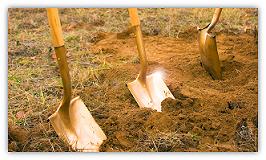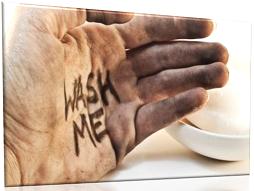Beginning to Read the Bible
Beginning to Read the Bible
This may fall into the hands of someone who is willing to begin reading the Bible, but wants advice on the subject. Are you that person? Listen to me, and I will give a few short hints.
For one thing, begin reading your Bible this very day. The way to do a thing is to do it, and the way to read the Bible is actually to read it. It is not meaning, or wishing, or resolving, or intending, or thinking about it, which will advance you one step. You must positively read. There is no royal road in this matter, any more than in the matter of prayer. If you cannot read yourself, you must persuade somebody else to read to you. But one way or another, through eyes or ears, the words of Scripture must actually pass before your mind.
 For another thing, read the Bible with an earnest desire to understand it. Think not for a moment that the great object is to turn over a certain quantity of printed paper, and that it matters nothing whether you understand it or not. Some ignorant people seem to fancy that all is done if they clear off so many chapters every day, though they may not have a notion what they are all about, and only know that they have pushed on their mark so many leaves. This is turning Bible reading into a mere form. Settle it down in your mind as a general principle, that a Bible not understood is a Bible that does no good. Say to yourself often as you read, "What is all this about?" Dig for the meaning like a man digging for gold. Work hard, and do not give up the work in a hurry.
For another thing, read the Bible with an earnest desire to understand it. Think not for a moment that the great object is to turn over a certain quantity of printed paper, and that it matters nothing whether you understand it or not. Some ignorant people seem to fancy that all is done if they clear off so many chapters every day, though they may not have a notion what they are all about, and only know that they have pushed on their mark so many leaves. This is turning Bible reading into a mere form. Settle it down in your mind as a general principle, that a Bible not understood is a Bible that does no good. Say to yourself often as you read, "What is all this about?" Dig for the meaning like a man digging for gold. Work hard, and do not give up the work in a hurry.
For another thing, read the Bible with childlike faith and humility. Open your heart as you open your book, and say, "Speak Lord, for thy servant heareth." Resolve to believe implicitly whatever you find there, however much it may run counter to your own prejudices. Resolve to receive heartily every statement of truth, whether you like it or not. Beware of that miserable habit of mind into which some readers of the Bible fall. They receive some doctrines because they like them; they reject others because they are condemning to themselves, or to some love, or relation, or friend. At this rate the Bible is useless. Are we to be judges of what ought to be in the Word? Do we know better than God? Settle it down in your mind that you will receive all and believe all, and that what you cannot understand you will take on trust. Remember, when you pray, you are speaking to God, and God hears you. But remember, when you read, God is speaking to you, and you are not to "answer again," but to listen.
For another thing, read the Bible in a spirit of obedience and self-application. Sit down to the study of it with a daily determination that you will live by its rules, rest on its statements, and act on its commands. Consider, as you travel through every chapter, "How does this affect my position and course of conduct? What does this teach me?" It is poor work to read the Bible from mere curiosity, and for speculative purposes, in order to fill your head and store your mind with opinions, while you do not allow the book to influence your heart and life. That Bible is read best which is practiced most.
For another thing, read the Bible daily. Make it a part of every day's business to read and meditate on some portion of God's Word. Private means of grace are just as needful every day for our souls as food and clothing are for our bodies. Yesterday's bread will not feed the laborer today, and today's, bread will not feed the laborer tomorrow. Do as the Israelites did in the wilderness. Gather your manna fresh every morning. Choose your own seasons and hours. Do not scramble over and hurry your reading. Give your Bible the best, and not the worst part of your time. But whatever plan you pursue, let it be a rule of your life to visit the throne of grace and the Bible every day.
For another thing, read all the Bible, and read it in an orderly way. I fear there are many parts of the Word which some people never read at all. This is to say the least, a very presumptuous habit. "All Scripture is profitable" (2 Tim. 3:16). To this habit may be traced that want of broad, well-proportioned views of truth, which is so common in this day.  Some people's Bible-reading is a system of perpetual dipping and picking. They do not seem to have an idea of regularly going through the whole book. This also is a great mistake. No doubt in times of sickness and affliction it is allowable to search out seasonable portions. But with this exception, I believe it is by far the best plan to begin the Old and New Testaments at the same time – to read each straight through to the end, and then begin again. This is a matter in which everyone must be persuaded in his own mind. I can only say it has been my own plan for nearly forty years, and I have never seen cause to alter it.
Some people's Bible-reading is a system of perpetual dipping and picking. They do not seem to have an idea of regularly going through the whole book. This also is a great mistake. No doubt in times of sickness and affliction it is allowable to search out seasonable portions. But with this exception, I believe it is by far the best plan to begin the Old and New Testaments at the same time – to read each straight through to the end, and then begin again. This is a matter in which everyone must be persuaded in his own mind. I can only say it has been my own plan for nearly forty years, and I have never seen cause to alter it.
For another thing, read the Bible fairly and honestly. Determine to take everything in its plain, obvious meaning and regard all forced interpretations with great suspicion. As a general rule, whatever a verse of the Bible seems to mean, it does mean. Cecil's rule is a very valuable one: "The right way of interpreting Scripture is to take it as we find it, without any attempt to force it into any particular system." Well said Hooker, "I hold it for a most infallible rule in the exposition of Scripture, that when a literal construction will stand, the furthest from the literal is commonly the worst."
In the last place, read the Bible with Christ continually in view. The grand primary object of all Scripture is to testify of Jesus. Old Testament ceremonies are shadows of Christ. Old Testament judges and deliverers are types of Christ. Old Testament history shows the world's need of Christ. Old Testament prophecies are full of Christ's sufferings, and of Christ's glory yet to come. The first advent and the second – the Lord's humiliation and the Lord's kingdom – the cross and the crown, shine forth everywhere in the Bible. Keep firm hold on this clue, if you would read the Bible aright. uses the word "hands" in this way to teach us about Himself in terms which we can understand. As you work out the quiz, you will find there are some texts which do speak of God's hand.
 We are also taught about the uncleanness of our hands in a spiritual sense. Because of sin our hands have become dirty, but water cannot wash the dirt away. Do we know something about such "dirty" hands? It once was the prayer of a kitchen maid, "Lord show me myself." Otherwise we do not realize that our hands are so "dirty." It is a good prayer for all of us. But God's Word also tells us that the blood of Jesus Christ cleanses from all sins. His hands were pierced, His blood did flow to make His people white as snow. Let us ask the Lord, just as the poet did in one of the Psalms, "Wash me, make me pure within; cleanse, O cleanse me from my sin."
We are also taught about the uncleanness of our hands in a spiritual sense. Because of sin our hands have become dirty, but water cannot wash the dirt away. Do we know something about such "dirty" hands? It once was the prayer of a kitchen maid, "Lord show me myself." Otherwise we do not realize that our hands are so "dirty." It is a good prayer for all of us. But God's Word also tells us that the blood of Jesus Christ cleanses from all sins. His hands were pierced, His blood did flow to make His people white as snow. Let us ask the Lord, just as the poet did in one of the Psalms, "Wash me, make me pure within; cleanse, O cleanse me from my sin."
The first letters of the answers to the quiz will spell out words found in Psalm 143. These words speak about many uses for our hands.

Add new comment